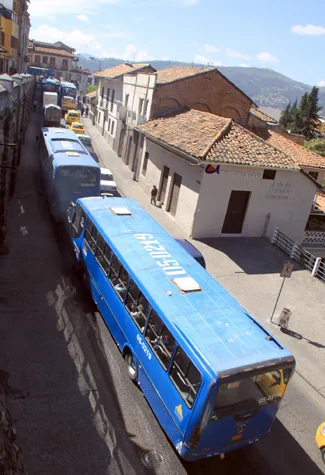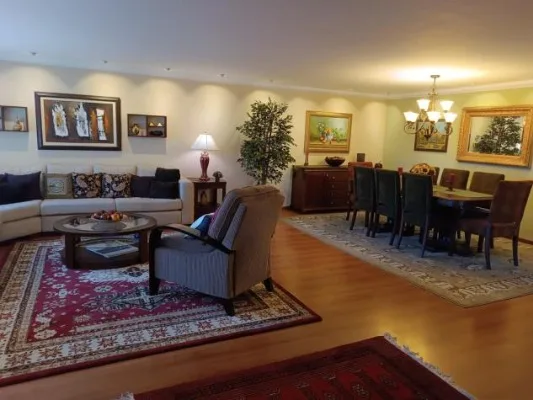Cuenca university students demand that the city keep bus fares at 25 cents; city considers raising fares that have not changed in 12 years
Cuenca college students are demanding that city officials follow Quito’s lead and keep municipal bus fares at 25 cents.
Following negotiations with b us companies, Quito Mayor Mauricio Rodas announced last week that fares would remain at 25 cents, although the city agreed to increase subsidies to carriers to cover costs. Without the subsidies, fares would increase to 40 cents, according to a city consultant.
us companies, Quito Mayor Mauricio Rodas announced last week that fares would remain at 25 cents, although the city agreed to increase subsidies to carriers to cover costs. Without the subsidies, fares would increase to 40 cents, according to a city consultant.
Cuenca has been reviewing bus fares for four months and Mayor Marcelo Cabrera has said that a fare increase is possible. The 25 cent rates was established in 2003 and has been maintained by federal subsidies.
“We applaud the action of the city of Quito in keeping bus fares affordable,” says Natalia Lituma, coordinator of the Federation of Ecuador University Students (FESE). “Any increase will put a terrible burden on students as well as Ecuador’s poor,” she says.
Lituma added that university students will mount public protests if fares in Cuenca are increased.
College student currently pay half price, or 12 cents, for bus fare. The subsidized fare also applies to grade school students, the handicapped and the elderly.
The federal government, which has covered the cost of subsidies in the past, announced in October that it is passing the expense on to municipalities. The move has stirred resistance in some cities, including Guayaquil, where Mayor Jaime Nebot, an opponent of President Rafael Correa, say he will not increase subsidies.
Cabrera has said that it would be difficult for Cuenca to contribute more to the bus companies and has suggested that fares should be adjusted to meet “the market reality.”
Milton Wilches, who represents Cuenca bus owners, says that more money is critically needed to maintain and improve service. His organization, Cuenca Integrated Transport System (CITS), has submitted a formal request to the city for a fare increase to 42 cents. The amount is based on the results of a three-year public transport study, Wilches says.
“Our buses are in poor repair and many need to be replaced,” says Wilches. “We also need more resources to improve service and to train our drivers. The city says we need better equipment and better service and to do this we will need more money.” The private bus companies that provide municipal service operate 480 buses and provide about 400,000 rides a day.
Wilches says he doesn’t care if the additional money comes from increased fares or more subsidies but agrees with Cabrera that the city cannot afford to increase subsidies.
Fares for Cuenca’s tram system, Tranvía de los Cuatro Rios, scheduled to be operational in 2016, will be same as for city buses.





















